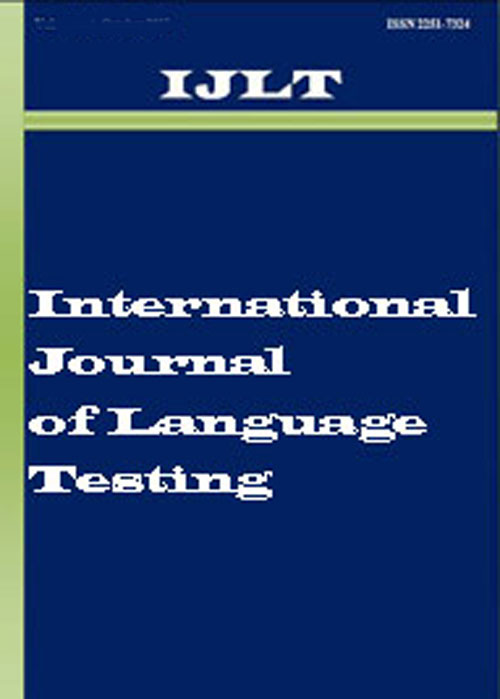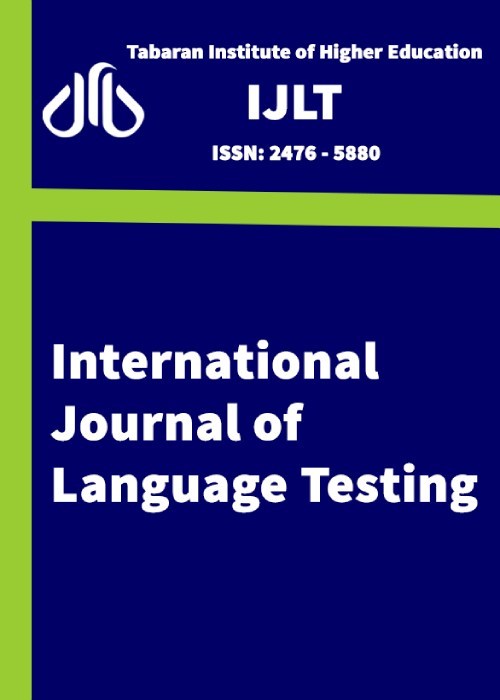فهرست مطالب

International Journal of Language Testing
Volume:8 Issue: 2, Oct 2018
- تاریخ انتشار: 1398/11/14
- تعداد عناوین: 2
-
-
Pages 33-43
In this study, the cloze-elide test was developed and administered under time constraints. This research is aimed to examine the validity and reliability of the speeded cloze-elide test and investigate its relationship with reading comprehension, C-Test, and multiple-choice cloze test. Processing speed is a vital indicator to distinguish high to low levels of language proficiency. The obtained test scores of the test takers' performance in the restricted time reveal their level of overall language proficiency. One-hundred fifty Iranian undergraduate English students were selected to participate in this study. A reading comprehension test, C-tests, multiple-choice cloze tests and speeded cloze-elide tests were presented to the students. The Cronbach's alpha reliability revealed that speeded cloze-elide test is highly reliable. Moreover, the principal component analysis resulted in the presence of one component which supports the unidimensionality of the data. The findings also illustrated that the C-Test is a slightly better measure of reading comprehension than multiple-choice cloze test and speeded cloze-elide test. Based on the analysis of data, time limitations increase the test validity and test reliability on the cloze-elide test.
Keywords: speeded cloze-elide test, validity, reliability, processing speed -
Pages 44-53
Translation assessment has usually been problematic for theoreticians, curriculum developers and university lecturers. In this study, we propose methods for translation assessment. The authors search to elaborate assessment aspects of translation to reduce rater subjectivity in scoring and define what factors should be taken into account in assessing translated texts by developing a new model for the evaluation and scoring of translations. Accordingly, the existing methods for the assessment and evaluation of translations were reviewed and subsequently, two questionnaires were administered to a total of number of 10 translation lecturers inquiring about their methods for assessing students' translations and about 45 translation students about the way their instructors assess their translation tasks. Based on the results obtained from both questionnaires and also the existing scales of assessment, the study shows a significant difference between the views of the two groups under investigation.
Keywords: Assessment, Individual translation, advanced translation


